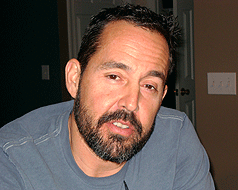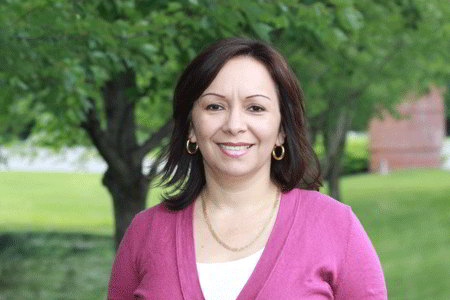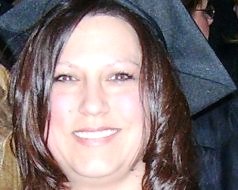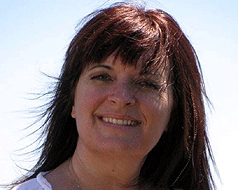
Online education degree gets As from this teacher
Maureen Taylor was tired of the brick-and-mortar experience. When it was time to pursue her doctorate, she turned to a challenging online program. She was definitely not disappointed.
Maureen Taylor has taught fifth grade for the past 18 years. She earned a master’s and specialist degree from brick-and-mortar schools, but when it came time to get her doctorate, she dreaded going back into the classroom.
“Unfortunately, attending the universities meant travel time, rushing to class, carrying heavy course books, and the aggravation of Atlanta traffic,” she said.
Maureen found a solution at Walden University, where she could earn the challenging online doctorate in education without the hassle of dealing with classrooms. She took the plunge when she was 46, eventually earning her doctoral degree in education. She also tacked on a certification to teach gifted students, just for good measure.
Q. How did online learning fit in with your busy schedule?
A. Online is terrific. You get a syllabus, watch videos online or on disc, share in chat rooms, post discussion on the board, and pair in subgroups. Communication with your professor is always available. If an assignment had a one-week turnaround, I found early mornings on the weekends and early evenings on school days offered me the most productive work time. I read the endless assignments anywhere I could. My books had their own pillow and space on the bed.
Q. Let’s talk about the benefits and the challenges of earning your degree online.
A. Benefits? Many. I didn’t have to listen to grumbling and complaining of other students. I didn’t have to drive anywhere at any time. I was available for my family, but they all knew I had to have my school time. I was also freed from the excuses of why course work wasn’t done, asking for extended due dates, complaining about the professor, people eating in class and talking when the prof was talking.
The challenges of online? Because I was teaching and tutoring, I did not have the option of letting myself slip. I loved the feeling of turning in an assignment early and setting standards with my work when I posted on the board. I had to set up my home office to meet the huge demands of online learning. I researched and queried other students and found what met my needs. Without that, I would have been buried in all the writing you must produce.
Q. Was online learning what you expected it to be?
A. Once I familiarized myself with the workings of the course, how to find research, post to the board, attend online sessions, etc. I knew exactly what to do. I was unsure of my expectations as it was my first real online course and degree. I did expect a challenge and, in most cases, I got it. My philosophy was if I was paying this much money for a degree, it needed to be of value to me, challenging and useful in my career.
Q. What was the most surprising thing about the online learning experience?
A. Giving yourself the time to complete assignments was a temporary challenge. Just how long would I need to find the research, read it, and write it in order to satisfy the criteria and my own personal standards? Once that was established there were few surprises. Maybe when I got to the dissertation reviews I had to double step, but that is indicative of any doctoral program, not just online.
Q. How your program was structured? What was your typical school day or school week like?
A. Students were required to complete an introductory walk through of the course: what was expected, how to manipulate the class online, meeting your classmates and terminology we all had to know. Our books came a week or two before the classes began, and our syllabus was posted before class began.
We had assignments due the first week. Teachers were required to post their assignments on the board and then respond to at least three other students. There were weekly assignments, readings and postings, followed by intermittent large papers due each semester. Students were expected to read these large papers from their peers and make revisions as needed. Learning is collaboration, and online makes it much easier than working in live groups.
Q. Did you miss the face-to-face interactions with your fellow students and professors?
A. All students receive a class list that gives personal email addresses, where students work/teach, where students live, phone numbers etc. Online programs know the value of taking courses with peers for obvious reasons. Having a support group available and intimate is critical. Professors will Skype or go to the phones. I did not miss face to face at all.
Q. How did your degree help further your career?
A. My degree was valued by my school system and came with a nice raise. My degree prepared me to be relevant in today’s changing educational system. I was current on all the latest research and could speak on trends and issues easily. Although there is conflicting research on higher degrees and teacher ability in the classroom, I know that it has made me a far better teacher and one who is interested in everything that goes on around me, not just in the classroom. The discipline of studying and following research has stayed with me over the years.
Q. What advice do you have for students who are considering an online degree?
A. Research your university. Are their standards high enough? Start with interviewing current or previous students. Does the course work seem too easy or is the turnaround for graded papers too slow? Look for all the aggravating things before you sign up. If your school has a home base in Minnesota and Florida and you need face-to-face time, can you make that work in your schedule and finances? Finally, are you ready to commit, especially on a doctoral level, for four more years? And no, you can’t sell your books back.









